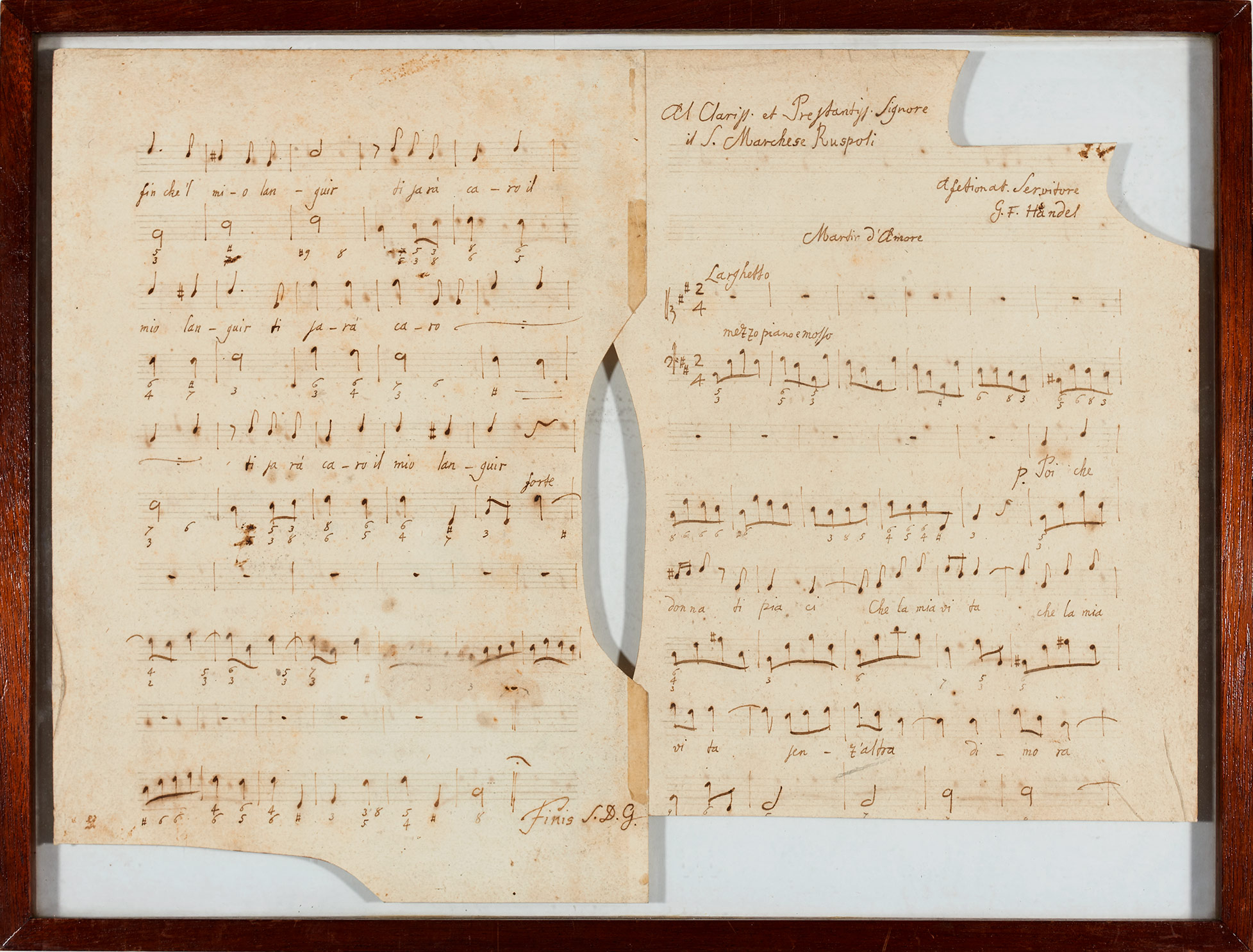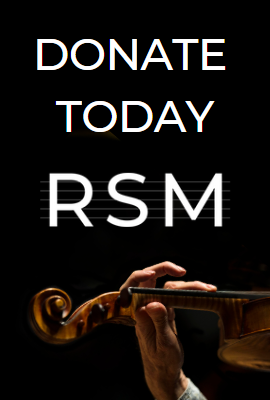Archive Item of the Month – February 2021
Giuseppe Verdi (Roncole, 9 October 1813 – Milan, 27 January 1901)
On the occasion of the 120th anniversary of the death of the Italian composer Giuseppe Verdi, a brief search in the RSM Archive revealed only two items: the first probably having little to rouse the reader’s excitement and the second of considerable curiosity from the perspective of the history of autograph and manuscript collecting.
The items are:
i) a publication of his opera Il Trovatore (Verdi’s opera Il Trovatore with Italian and English words, the latter written and adapted for representation by Charles Jefferys. London: Jefferys Limited) published late in the nineteenth century.
ii) a manuscript entitled [G]elosia orientale : d’introduzione, G. Verdi (December, 1861).
The manuscript has been identified by autograph specialists as a fake. It was donated by the composer Bernard Herrman (1911-1975) in 1955 along with another “unknown” composition sketch of the composer George Frideric Handel (1685-1759), likewise a forged work, entitled Martir d’amore [‘Poi che donna si piaci’], G.F. Handel.
Facsimiles (from the Latin “fac simile” meaning to make similar) are mostly associated with printed reproductions (generally through some kind of photography) of manuscripts or early printed editions. In earlier times a legitimate “copy” of a manuscript in another person’s handwriting in imitation (i.e. to “make similar”) would perhaps have been made as a souvenir when visiting illustrious figures or artistic geniuses and should not be regarded as inherently wrong or deceptive.
Forgeries are, on the other hand, extremely deceptive. The intention of the forger is, most likely, for pecuniary gain although a celebrated status cannot be ruled out. Forgeries or “identical” copies made with the intention of financial prospects are hoaxes which deceive the person or institution at the point of acquiring such an item. When a previously unknown work by a celebrated composer or writer is discovered in manuscript, it can lead to several potential lines of investigation relating to the writer’s work and output or even their biography. Fake manuscripts can, of course, be written for humour or entertainment without the intention to deceive and these two works “by” Verdi and Handel could be such examples.
Bernard Hermann was a collector of early music scores. It is not known how or when he acquired these items. The one purported to be by Handel is almost nothing like Handel’s own handwriting! Hermann donated this gift to the RSM during his lifetime for instructional purposes and never intended to sell these items.
Further reading:
Ladenburger, Michael, ‘Ludwig van Beethoven: Facsimile: Fakesimile: Fake’, in The Book Collector (2020), pp.586-605.



![[G]elosia orientale : d'introduzione, G. Verdi (December, 1861)](/wp-content/uploads/2021/01/mbm184-verdi.jpg)


